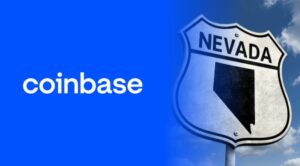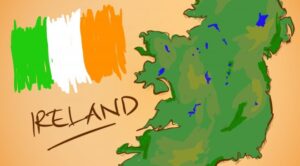Key Moments:
- The British Horseracing Authority (BHA) has rejected claims of collaboration with anti-gambling advocates.
- BHA’s ‘Racing’s Cancelled Day’ campaign spotlighted opposition to merging betting taxes in the UK.
- No progress has been reported on the overdue horseracing betting levy reassessment.
Rising Friction Over Proposed Tax Changes
Relations between the British gambling and horseracing sectors have become strained as government discussions regarding betting tax reforms press forward. While these industries usually align on policy matters, the current debate has stirred accusations and clarified positions on proposed fiscal changes impacting both sides.
BHA Responds to Collaboration Claims
The British Horseracing Authority (BHA) has publicly dismissed allegations that it is working alongside anti-gambling campaigners. These suggestions emerged after the BHA participated in a roundtable organized by the Social Market Foundation (SMF), a think tank known for recommending a significant increase in UK gambling tax. The SMF’s proposals have received notable attention and political backing. However, the BHA insists its sole objective is to safeguard horseracing by seeking a distinct, lower tax category for the sport.
In a statement, the BHA clarified: “Our Axe The Racing Tax campaign has only one focus: to protect the sport of horseracing by calling for the sport to be taxed at a different, lower rate. This is why suggestions the sport is working closely with the anti-gambling lobby are simply inaccurate. The BHA – along with other racing stakeholders – attended one roundtable organised by the SMF in the spring which explored racing’s views on the Treasury proposals.”
The BHA further stated: “With the SMF being an independent think tank well-respected by those in government, it would be remiss of any industry to refuse to share its own insights with an organisation that regularly makes recommendations to those in power, even if there is not support from said industry for every recommendation made.”
Brant Dunshea told the Racing Post: “History has shown that engagement and transparency with critics is central to an industry maintaining its social licence. Any modern and progressive industry must be able to engage with those that have opposing views, and it is logical to engage various bodies when making our case heard, including respected think tanks and third-party advocates.
“However, this does not equate to racing forming a closer relationship with any such bodies, and this is especially the case as regards the anti-gambling lobby.”
Protest Highlights Industry Resistance
The discord gained further visibility after the BHA’s organization of ‘Racing’s Cancelled Day’ on September 10, described as the inaugural suspension of all racing events in protest. The campaign aimed to contest the UK Treasury’s proposal to consolidate Remote Gaming Duty, General Betting Duty, and Pool Betting Duty into a new Remote Betting and Gaming Duty (RBGD).
While both the racing and gambling sectors have voiced opposition to this consolidation, fearing a heightened tax load on horseracing betting, the Betting and Gaming Council (BGC) criticized the BHA for not consulting its members before initiating the protest.
The BHA has defended its stance, noting substantial participation in a Westminster event attended by over 200 individuals, including 20 politicians, as well as significant reach for the #AxeTheRacingTax social media campaign, which reportedly exceeded 3 million impressions.
In its rationale, the BHA commented: “It was an unprecedented step to take. But it was a step that powerfully articulated the industry’s strength of feeling against a proposal the Treasury claims will simplify online betting taxes, but which will in reality only make horseracing significantly less profitable for bookmakers in comparison to other betting products. The consequences of this ‘racing tax’ on operators will have a severe knock-on impact on our sport which has a uniquely symbiotic relationship with the betting industry.”
Concerns Over Future Tax Increases
The BHA cautioned that it limits its input to discussing the principle of harmonizing betting taxes rather than specific rates, reiterating that the Treasury has not consulted on particular rates. Still, the BHA pointed out: “With the Government facing difficult economic headwinds, it would be naïve to assume that harmonisation would result in taxes going down. This is why the Axe The Racing Tax campaign has argued that it is most likely that taxes on horseracing would only increase to at least the current 21 per cent that operators pay on online gaming. Given the size of the fiscal black hole facing the Government it is reasonable to assume that the rate may be considerably higher.”
Industry Interdependence and Outstanding Issues
The debate brings into focus the delicate dynamic between horseracing and gambling. Revenues from betting remain critical for horseracing’s continued operation, while horseracing serves as a major product for gambling operators. Both sectors appear united in their unwillingness to shoulder higher taxes in support of the other’s profitability. Meanwhile, there has been no progress on the overdue review of the horseracing betting levy.
- Author


